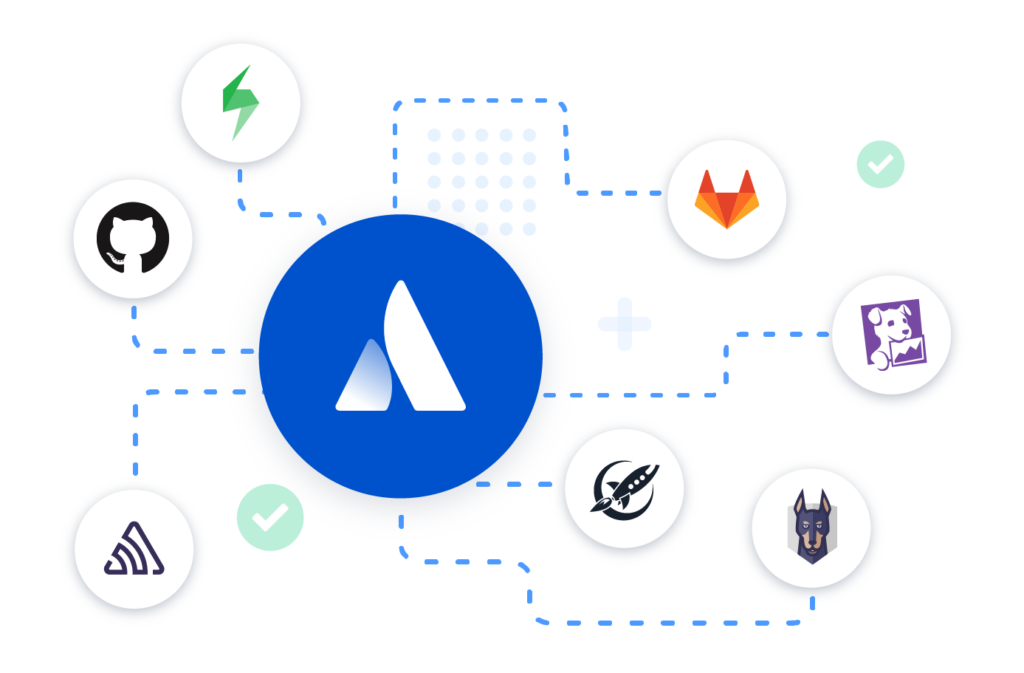In today’s IT landscape, adopting the right DevOps tools solutions is essential for optimizing software development and operations. These solutions enable teams to collaborate more effectively, automate processes, and deliver high-quality software faster. In this article, we will explore key DevOps tools solutions, highlight the role of Jira in managing these tools, and discuss how Apwide can enhance your DevOps processes.
Key Components of DevOps Tools Solutions
1. Continuous Integration/Continuous Deployment (CI/CD) Pipelines
- Jenkins: Jenkins is a foundational tool in many DevOps toolchains. It automates the process of building, testing, and deploying code, ensuring that development is continuous and delivery is swift. Its plugin ecosystem allows integration with various other DevOps tools, making it highly versatile.
- GitLab CI: GitLab CI is an integrated solution that offers source control, CI/CD, and deployment automation within a single platform. It is particularly effective for teams seeking to manage their entire DevOps lifecycle in one place.
2. Configuration Management
- Ansible: Ansible is widely used for automating IT infrastructure management. It helps in maintaining consistency across different environments by automating the configuration of servers, networks, and applications using simple playbooks.
- Puppet: Puppet is another powerful tool for configuration management, enabling teams to automate and manage infrastructure as code (IaC). It is well-suited for larger organizations that need to manage complex environments.
3. Containerization and Orchestration
- Docker: Docker is a leading containerization tool that packages applications and their dependencies into containers, making them portable across different environments. This ensures that software behaves the same in development, testing, and production.
- Kubernetes: Kubernetes is the go-to solution for orchestrating containerized applications. It automates the deployment, scaling, and management of containerized applications, making it an essential component of modern DevOps strategies.
4. Monitoring and Logging
- Prometheus: Prometheus is an open-source monitoring tool designed for reliability and scalability. It provides powerful metrics collection and alerting capabilities, making it easier to maintain the health of applications and infrastructure.
- ELK Stack: The ELK Stack (Elasticsearch, Logstash, Kibana) is widely used for aggregating, analyzing, and visualizing log data. This tool is essential for monitoring and troubleshooting in real-time, helping teams quickly identify and resolve issues.
How Jira Supports DevOps Tools Solutions

Project and Workflow Management: Jira is an integral part of managing DevOps tools solution, offering powerful project management and workflow capabilities. Teams can track tasks, monitor progress, and manage sprints, all within a single platform. Jira’s customizable workflows ensure that the DevOps process aligns with your team’s specific needs.
Integration with DevOps Tools: Jira’s ability to integrate with other DevOps tools is a key strength. Whether connecting with Jenkins for CI/CD, Docker for container management, or Prometheus for monitoring, Jira provides a centralized platform for managing all aspects of the DevOps lifecycle. This integration helps in maintaining visibility across different stages of development and operations.
Apwide: Enhancing Environment Management in DevOps
Environment Planning and Scheduling: Apwide offers specialized tools for managing IT environments, a critical aspect of any DevOps strategy. With Apwide, teams can plan, schedule, and monitor environment changes efficiently, reducing the risk of conflicts and ensuring smoother deployments.
Jira Integration: Apwide seamlessly integrates with Jira, allowing teams to manage both environments and DevOps processes within a unified platform. This integration enhances the visibility and control of environment configurations directly from Jira, providing a more streamlined approach to managing complex deployments.
Best Practices for Implementing DevOps Tools Solution
Automate Everything: Automation is at the heart of effective DevOps practices. Tools like Jenkins, Ansible, and Docker should be utilized to automate repetitive tasks, reducing manual errors and increasing efficiency.
Ensure Consistency with Infrastructure as Code: Use configuration management tools like Ansible and Puppet to manage your infrastructure as code. This approach ensures that your environments are consistent and reproducible across all stages of the development lifecycle.
Monitor Continuously: Continuous monitoring is essential for maintaining the health of your applications and infrastructure. Implement monitoring tools like Prometheus and ELK Stack to gain real-time insights and proactively address issues before they impact end-users.
Integrate Seamlessly: Maximize the potential of Jira by integrating it with your other DevOps tools. This creates a cohesive workflow where all tools work together, providing a single source of truth for all DevOps activities.
Conclusion
DevOps tools solutions are essential for modern IT operations, enabling teams to automate processes, ensure consistency, and deliver software more efficiently. Jira plays a pivotal role in managing these tools, providing project management and workflow capabilities that align with DevOps practices. With the addition of Apwide’s environment management tools, teams can further enhance their DevOps processes, ensuring smooth and conflict-free deployments. By following best practices and leveraging the right tools, organizations can achieve greater agility, reliability, and success in their DevOps initiatives.

